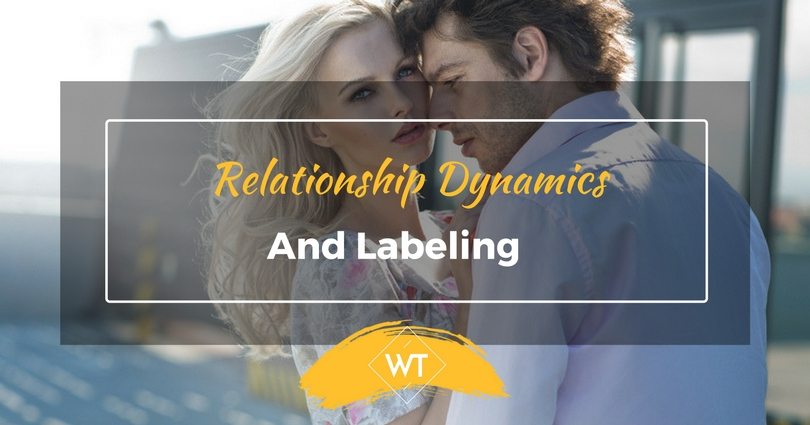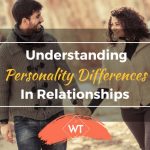Relationship Dynamics and Labeling

Do you think of people as fixed, robotic stereotypes or as growing, dynamic individuals? This seemingly small choice of strategy can have a huge impact on the quality of relationships you enjoy in your life.
Relationship dynamics are interesting, ever-changing and can be very confusing. If we want to make permanent meaningful changes in our relationship dynamics, we should address the real cause—the images we carry in our minds of ourselves, and each other.
George Bernard Shaw with his characteristic wit, humor and above all good sense had once remarked that his favorite person in the world was his tailor because he would always take fresh measurements. Imagine if a tailor would go by an old measurement in stitching your suits!
The Influence of our Past Experiences
Just like light gets refracted through a prism, we all carry psychological and emotional prisms in our minds. Some of these prisms are our life experiences, our emotional baggage, our prejudices and the like.
Therefore, the image that we form in our minds of people or events are never the objective reality but our subjective perception of that reality as perceived through the various prisms of our mind.
If you wear rose-tinted glasses, you are likely to see the world in a rosy shade. If you wear green glasses of envy, everything that you see in the world will carry the shade of envy. If you wear blue glasses of pessimism, you are sure to color everything in your world with a shade of negativity.
How Labeling Impacts Relationships Negatively
Relationship dynamics are always present and they constantly influence our behavior. By focusing on these larger issues, rather than the specific problem at hand, it is typically easier to see what is going on. And often it is easier to resolve a specific problem when the larger, underlying issue is addressed.
A’s perception of himself and his perception of B influences A’s behavior towards B. This, in turn, influences B’s perception of A and has an impact on his behavior towards A. Relationship dynamics develop in this manner and before we know it, we become helpless puppets who act as a result of the dynamic.
Samaira and Jyoti were the best of friends in college and they spent so much time together that they almost seemed like sisters to everyone around. Jyoti visited Samaira’s home frequently and knew her folks well. Samaira’s mother was a pure vegetarian who had a strong dislike for people who ate non-vegetarian food.
When she learnt that Jyoti loved non-vegetarian food and her family ate a non-vegetarian dish almost every day, she developed a dislike for her and her family. She discouraged Samaira from interacting with Jyoti and influenced her to believe that people who ate non-vegetarian food were of a low character.
Over time, Samaira got influenced by her mother’s beliefs and labeled her friend Jyoti as ‘immoral’ in her mind. This negativity reflected in her behavior and their beautiful friendship turned sour in no time.
Conclusion – Relationship Dynamics
Smart, Foolish, Well-behaved, Uncultured . . . our brain makes our life easy by choosing stereotypes and labeling people in a hurry. When problems emerge, people often get so caught up and focused on the specifics at hand that they fail to realize the larger issues at play.
The important and wise thing to remember is to always give people a fresh chance to change your perception about them rather than dismiss them based on their past actions or traits since human beings are dynamic. People change in response to the changes in the environment and their own capacity for learning.
Therefore, it is inaccurate to fix permanent labels on people since all of us are engaged in a lifelong process of growing, evolving and changing.









Leave a Reply